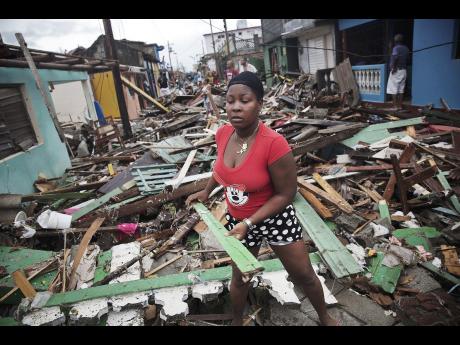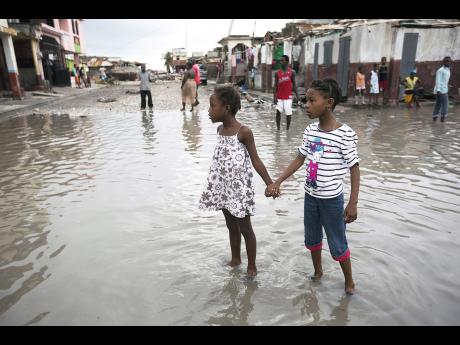Caribbean islands urged to ratify Paris Agreement
With the Marrakech climate change talks now only weeks away, the few CARICOM member states that have not yet ratified the Paris Agreement - Jamaica among them - have been urged to do so.
The appeal has come from Dr James Fletcher, former head of the CARICOM Task Force on Sustainable Development.
He predicted that the failure to ratify will see those islands running the risk of not having a say in the first meeting of the parties to the global deal next month.
"Given that the Paris Agreement will enter into force in the Marrakech meeting ... if you haven't ratified the Paris Agreement, then really you cannot be at the table determining rules and procedures and everything else," he cautioned.
"If you have not ratified the agreement, then you don't have a voice at the meeting. There will be CARICOM countries there (who share similar challenges) and who will speak on your behalf, but I don't think it is a position you want to be in because you cannot articulate your own concerns," added Fletcher, also the former minister of sustainable development for St Lucia.
Ten CARICOM countries have so far ratified the agreement. They include Antigua and Barbuda, Barbados, The Bahamas, Belize, Dominica, Grenada, Guyana, St Kitts and Nevis, St Lucia, and St Vincent and the Grenadines.
They are among the 81 countries to have ratified the agreement, which prescribes the way forward for the planet in its battle against the changing climate.
Caribbean islands and other small-island developing states (SIDS) are counted among those most vulnerable to climate threats.
Those threats include extreme weather events, the likes of Hurricane Matthew, which barrelled across the region recently, leaving in its wake death and destruction in places such as Haiti, Cuba and The Bahamas.
In Haiti alone, the death toll is registered at more than 900, with millions of dollars in loss and damage to infrastructure.
Meanwhile, Fletcher - a respected regional statesman reputed for his work in climate change and other development issues, including energy - is buoyed with the progress on the Paris Agreement. Still, he cautions that there are still miles to go to where the region needs to get in its readiness for climate change.
"We are very encouraged by how quickly this agreement has come into force ... It really is awesome for me that the community has rallied to this cause and there seems to be an urgency that, at least philosophically, we need to move in a particular direction," he said.
LACK OF URGENCY
"What is worrying to me is that there does not seem to be an urgency where climate action is concerned. If you look at the level of ambition for the level of greenhouse gases, it is still not taking us below 2.7 degrees Celsius. Nobody has come out and said, for example, that they will reduce their emissions by another 25 per cent," Fletcher added.
This, he noted, is what is required if the world is to realise one of the objectives of the Paris Agreement, to hold "the increase in the global average temperature to well below 2 degrees Celsius above pre-industrial levels and to pursue efforts to limit the temperature increase to 1.5 degrees Celsius above pre-industrial levels, recognising that this would significantly reduce the risks and impacts of climate change".
"I would like to see greater pledges from major emitters to reduce their emissions and more pledges where finance is concerned," the former minister noted.
"There is a lot that has to be done where SIDS are concerned. (We are in a time when we) have hurricanes hitting multiple countries and travelling in pairs. So the situation is ominous; the projections are all showing that our area will be one of the hardest hit by climate change, and we don't have the funds to adapt," he said.
"We are really are saying to our residents that they are in for a very bleak future when we should be saying, having signed the agreement, we can now assure that the climate finance is going to flow and action is going to be taken to reduce greenhouse gases to get us close to 1.5," added Fletcher, who will be in Marrakech next month to support CARICOM.
"We are not in a good place where bending that temperature curve is concerned, and making finance more readily available to SIDS is one way to get there," he said.




